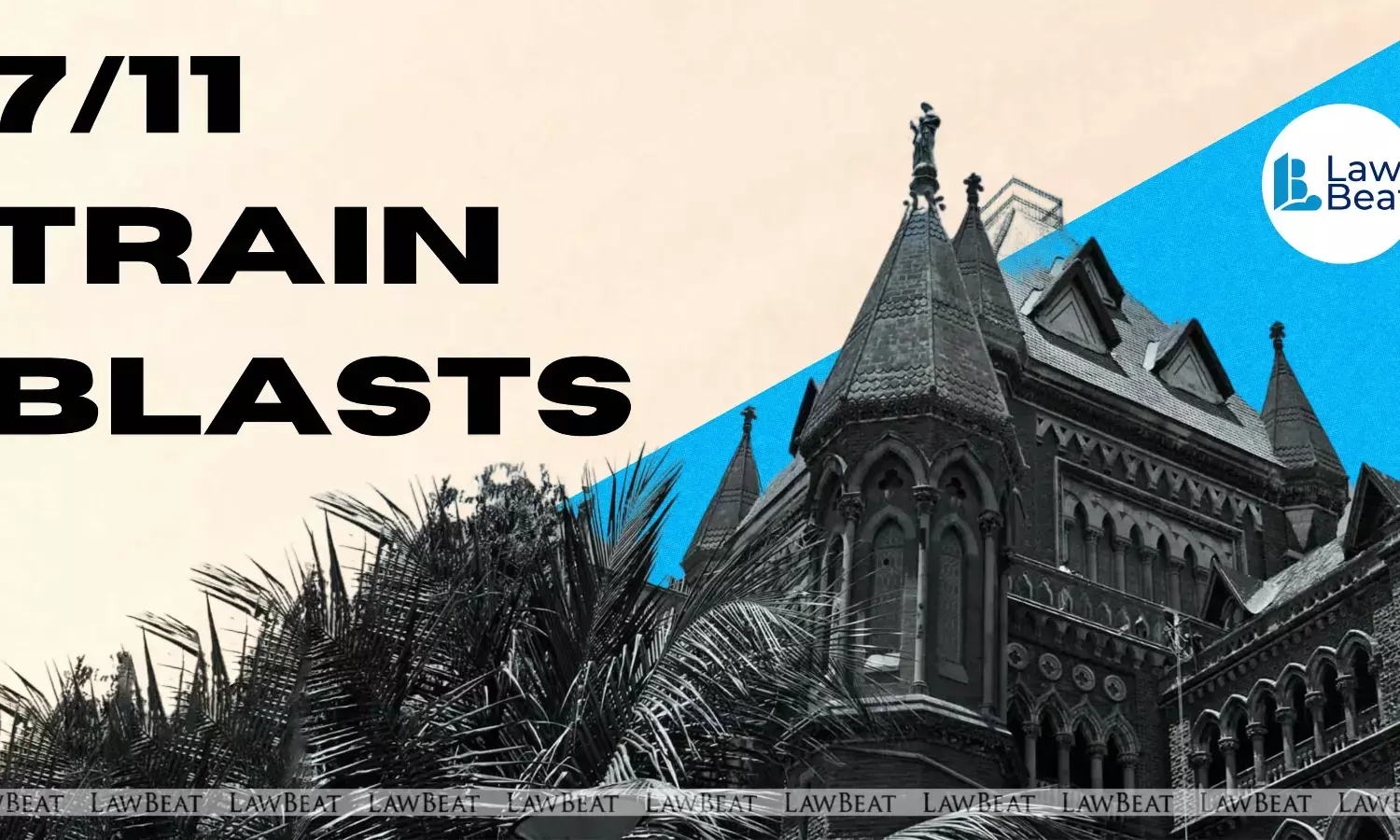Prosecution ‘Utterly Failed’ to Prove Guilt: Bombay HC in 7/11 Mumbai Blasts Case

The Bombay High Court on July 21, 2025, acquitted all 12 men convicted in the 2006 Mumbai train bombings, holding that the prosecution had "utterly failed to establish the offence beyond reasonable doubt" on each count.
A division bench of Justices Shyam C. Chandak and Anil S. Kilor set aside the trial court’s 2015 judgment, which had convicted the men under multiple provisions of the Indian Penal Code, Unlawful Activities Prevention Act, Maharashtra Control of Organised Crime Act, and explosives laws.
The High Court declined to confirm the death sentences of five accused and allowed all criminal appeals, ordering their immediate release unless wanted in other cases.
Court said it was “unsafe” to reach the conclusion that the appellants had committed the offences they were convicted for.
Accused Kamal Ansari (A1), Mohd. Faisal Shaikh (A3), Ehtesham Siddique (A4), Naveed Khan (A12), and Asif Khan (A13) were sentenced to death, while Tanveer Ansari (A2), Mohd. Majid (A5), Shaikh Mohd. Ali Alam Shaikh (A6), Sajid Ansari (A7), Muzzammil Shaikh (A9), Suhail Shaikh (A10), and Zameer Shaikh (A11) were sentenced to life imprisonment
Authored by Justice Kilor, the 671-page judgment started as: "Punishing the actual perpetrator of a crime is a concrete and essential step toward curbing criminal activities, upholding the rule of law, and ensuring the safety and security of citizens. But creating a false appearance of having solved a case by presenting that the accused have been brought to justice gives a misleading sense of resolution. This deceptive closure undermines public trust and falsely reassures society, while in reality, the true threat remains at large. Essentially, this is what the case at hand conveys".
The bench dissected the prosecution’s three-pronged case, eyewitnesses, recoveries, and confessional statements, and found each to be legally deficient or factually unreliable:
Eyewitness Testimony: Test Identification (T.I.) parades were conducted by an officer who had no authority to do so, rendering several identifications, including those of A1, A3, A13, inadmissible. Many witnesses, including taxi drivers and those who allegedly saw the accused plant bombs, came forward after 100+ days, which the court termed as “abnormal.” Their dock identification happened after four years and was deemed unsafe, lacking any “trigger” or sufficient prior observation to justify such delayed recognition.
Stock Witnesses & Contradictions: One witness (PW-74) was found to have acted as a panch in multiple DCB CID cases, casting doubt on his credibility. Another, PW-75, claimed to have seen bomb-making but later backtracked in cross-examination, stating it was a friend, not him, who witnessed it. That friend was never examined. Similarly, the conspiracy witness (PW-59) claimed he overheard discussions but admitted he didn’t know what they were about, and couldn’t recall the name of a bar dancer he allegedly spent a month with — despite remembering the names of Pakistani suspects.
Faulty Recoveries: Items like RDX, detonators, cookers, circuit boards, and maps were allegedly recovered, but the court found that the prosecution failed to establish “proper custody and proper sealing”, a critical procedural safeguard. Even technical evidence like circuit boards lacked connection to the actual type of bombs used, which the prosecution failed to prove.
Confessional Statements: Court found the confessions inadmissible due to multiple violations, including:
1. Absence of voluntary compliance and subjective satisfaction for granting prior approval under MCOCA;
2. Non-application of mind by the authority who granted such approval;
3. Failure to examine the official who issued the approval;
4. Mechanical and identical parts of different confessional statements;
5. Lack of mandated certificates and unexplained delay;
6. Most crucially, accused successfully established that they were subjected to torture to extract these statements.
Additionally, court noted that the prosecution failed to supply Call Detail Records (CDRs) despite defence requests, a lapse for which it drew an adverse inference.
Judgment and Order
“In these circumstances,” the court held, “the impugned Judgment and Order of conviction and sentence is liable to be quashed and set aside".
Court also extended its acquittal to Accused No. 1, Kamal Ansari, who died during the pendency of the case. All appellants were directed to execute personal bonds of Rs. 25,000 for future appearance if required.
The bench placed on record its appreciation for the extensive work done by both the prosecution and defence, including senior advocates and law clerks who handled the case’s 169 volumes and over 44,000 pages.
Case Title: The State of Maharashtra versus Kamal Ahmed Mohd. Vakil Ansari and others and connected matters
Judgment Date: July 21, 2025
Bench: Justices Shyam C. Chandak and Anil S. Kilor
